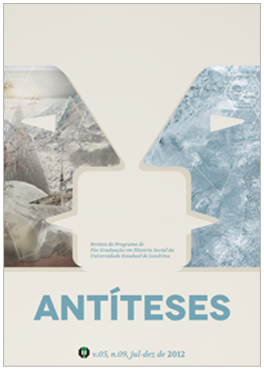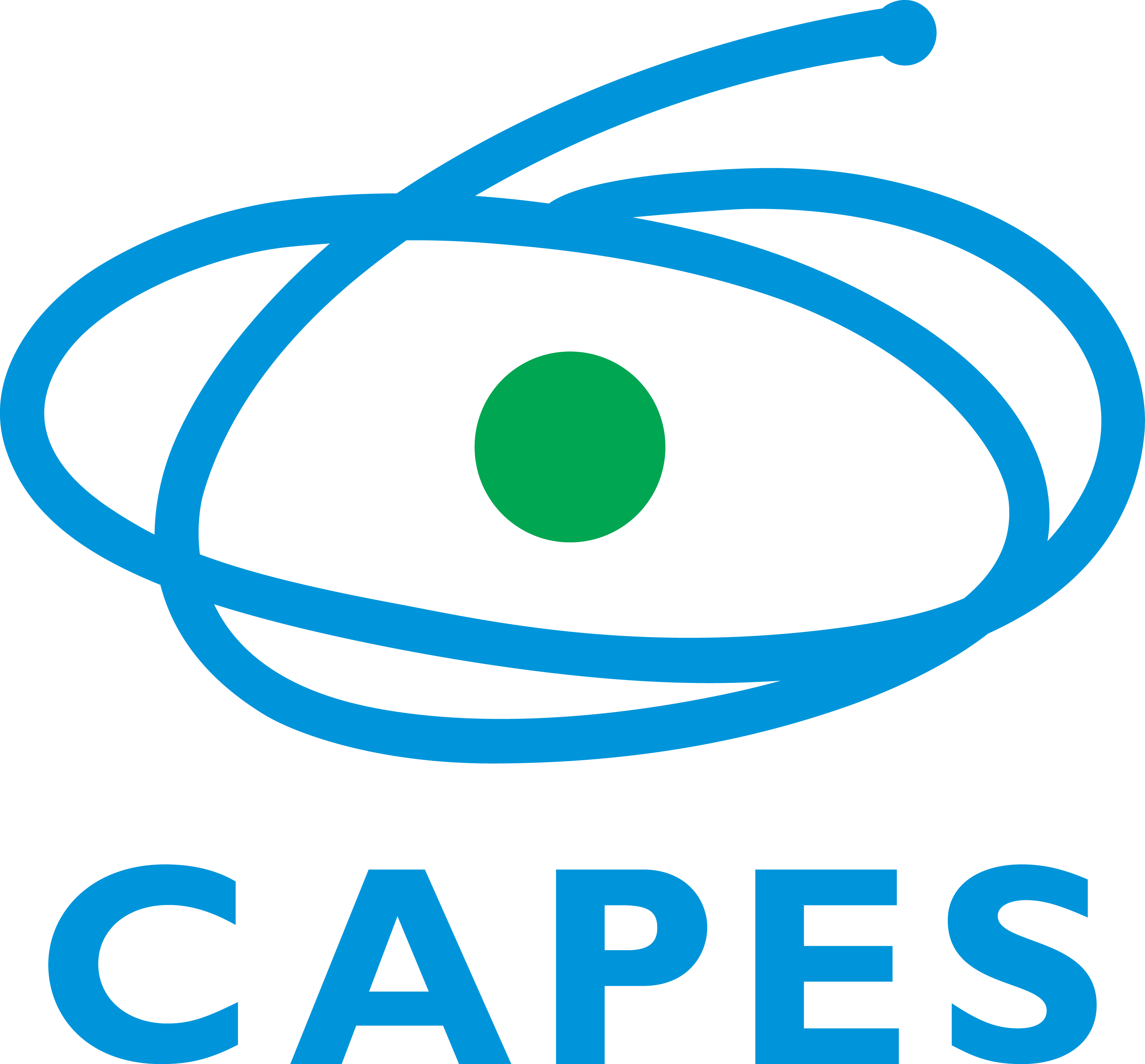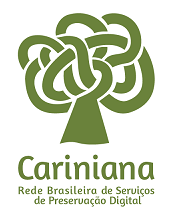The route of a research in History
DOI:
https://doi.org/10.5433/1984-3356.2012v5n10p807Keywords:
Cultural history, Language, . Historical research, Literature, animal magnetismAbstract
This article problematizes what high school students (14-19 years old) think about history and his teaching in a virtual space. From Orkut, virtual network of relationships, investigates virtual communities related to the discussion of the history and his teaching, privileging the comments posted on forums (place to debates about the subject). Discusses the nature of the virtual sources and justifies its use as material for historical research. Considers the new ways of thinking about the reality and construction of identity/community of the subject who experiences cyberculture and after this, highlights the significance that netizens place on history and his teaching, in particular the "practicality" of this field of knowledge and/or school discipline. This text is the reporting of the research that I undertook while realizing the Mastering course in Social History in the State University of Londrina. I started the research studying the novel Nove noites written by Bernardo Carvalho, then I penetrate into the labyrinth of its narrative voices and got involved in the discussion about its metafictionality. Then I analyzed some academic theses that focus those metafictions. I would like to visualize the academic discourse about contemporary literature, realize if these works could be classified as metafictions. As I read the theses, however, I discovered António Lobo Antunes. Author of several novels, this Portuguese began his literary production with Memória de Elefante, which plot unfolds throughout the day of a psychiatrist that finds in language the possibility of transforming the world. For when I thought I had finally found my historical source, a sudden episode, the encounter with a book, changed the direction of my research. Written by the philosopher Peter Sloterdijk, A árvore mágica, tells the story of the animal magnetism; it is "an epic attempt in relation to the philosophy of psychology." For being a report of the route of the research of my sources this text goes up to the moment that I discovered Sloterdijk's novel and could delimit the subject of my dissertation.Downloads
Download data is not yet available.
References
ANKERSMITH, Frank R. Historiografia e pós-modernismo. Revista Topoi, Rio de Janeiro, n. 2, p. 113-135, mar./2001. Disponível em: http://www.ppghis.ifcs.ufrj.br/ media/topoi2a4.pdf. Acesso em: 2 ago. 2009.
ANTUNES, António Lobo. Memória de elefante. Rio de Janeiro: Objetiva, 2009.
ARMS, Kate. Polygamy in münster. Starr King School's Unitarian Universalist History class. 2001. Disponível em: http://www.sksm.edu/research/papers/polygamy.pdf. Acesso em: 17 abr. 2011.
AUGUSTO, Daniel. Um quiproquó metódico: os romances de Bernardo Carvalho. Trópicos (Revista Online), 2004. Disponível em: http://pphp.uol.com.br/tropico/html/textos/2374,1.shl. Acesso em: 28 fev. 2011.
BALZAC, Honoré de. Prefácio à "Comédia Humana". In: BALZAC, Honoré de. Estudos de mulher. Tradução de Ilana Heineberg. Porto Alegre: LP&M, 2006.
BILANGE, Elizabeth Maria Azevedo. O áspero humor de Lobo Antunes. 2007. 219 f. Tese (Doutorado em Literatura Portuguesa) - Universidade de São Paulo, 2007. Disponível em: http://www.teses.usp.br/teses/disponiveis/8/8150/tde-13022008-104503/pt-br.php. Acesso em: 10 fev. 2011.
BLOCH, Marc. A apologia da história ou o ofício do historiador. Tradução de André Telles. Rio de Janeiro: Jorge Zahar, 2001.
BOEHLICH, Walter (org.). As cartas de Sigmund Freud para Eduard Silberstein (1871-1881). Tradução de Flávio Meurer. Rio de Janeiro: Imago, 1995.
CARVALHO, Bernardo. Nove noites. São Paulo: Companhia das Letras, 2006.
CLASTRES, Pierre. A sociedade contra o Estado. In: CLASTRES, Pierre. A sociedade contra o Estado. Tradução de Theo Santiago. São Paulo: Cosac & Naify, 2003. p. 207-234.
DUGNANI, Patrício; CRUZ, Lílian Aparecida. Mitologia e pós-modernidade: Proteu, Argos e Narciso - os mitos e seus reflexos na sociedade. Sistema Anhanguera de Revistas Eletrônicas, Valinhos, v. 1, ano 1, 2007. Disponível em: http://sare.unianhanguera.edu.br/index.php/anudo/article/view/759/586. Acesso em: 2 fev. 2011.
ELLENBERGER, Henri F. The discovery of the unconscious: the history and evolution of dynamic psychiatry. Washington: BasicBooks, 1970.
FOUCAULT, Michel. As palavras e as coisas: uma arqueologia das ciências humanas. 9. ed. Tradução de Salma Tannus Muchail. São Paulo: Martins Fontes, 2007.
FREUD, Sigmund; SALOMÃO, Jayme (Dir.). Um estudo autobiográfico; inibições, sintomas e ansiedade: a questão da análise leiga e outros trabalhos. Edição Eletrônica de Sigmund Freud. Rio de Janeiro: Imago. [1924]. v. 20. (Obras Psicológicas).
GOETHE, Johann Wolfgang. Os anos de aprendizado de Wilhelm Meister. Tradução de Nicolino Simone Neto. São Paulo: Editora 34, 2006.
GRUPIONI, Luís Donisete Benzi. Coleções e expedições vigiadas: os etnólogos no Conselho de Fiscalização das expedições artísticas e científicas no Brasil. São Paulo: Hucitec/Anpoc, 1998.
HERMAN, Luc. The relevance of History: Der Zauberbaum (1985) by Peter Sloterdijk and Hawksmoor (1985) by Peter Ackroyd. In: D'HAEN, Theo; BERTENS, Hans. History and postwar writing. Amsterdam: Rodopi; Antwerpen: Restant, 1990. p. 107-124.
HUTCHEON, Linda. Poética do pós-modernismo: história, teoria e ficção. Tradução de Ricardo Cruz. Rio de Janeiro: Imago, 1991.
MUITO estrago por nada: o bug do milênio causará problemas no serviço público, nas comunicações e até mesmo na economia mundial. Isto É, São Paulo, n.1577, 22. dez. 1999. Disponível em: http://www.istoe.com.br/reportagens/27774_muito+estrago+ por+nada+. Acesso em: 31 jul. 2009.
PRIBERAM. Dicionário Priberam da Língua Portuguesa. 2012. Disponível em: http://www.priberam.pt/dlpo/. Acesso em: 15 jan. 2013.
RANUM, Orest. Os refúgios da intimidade. In: CHARTIER, Roger. História da vida privada: da renascença ao século das luzes. Tradução de Denise Bottman e Bernardo Joffily. São Paulo: Companhia das Letras, 1991. p. 211-262.
RUBIÃO, Murilo. O coelhinho Teleco. In: COSTA, Flávio Moreira da (org.). Os melhores contos fantásticos. Tradução de Adriana Lisboa. Rio de Janeiro: Nova Fronteira, 2006. p. 683-689.
SILVA, Haidê. A metaficção historiográfica no romance "Os cus de Judas". 2007. 148 f. Tese (Doutorado em Literatura Portuguesa) - Universidade de São Paulo, São Paulo. Disponível em: http://www.teses.usp.br/teses/disponiveis/8/8150/tde-13022008-105213/pt-br.php. Acesso em: 9 fev. 2011.
SLOTERDIJK, Peter. A árvore mágica: o surgimento da psicanálise no ano de 1785. Tentativa épica com relação à filosofia da psicologia. Rio de Janeiro: LTC, 1988.
VASCONCELOS, José Antonio. Quem tem medo de teoria: a ameaça do pós-modernismo na historiografia americana. São Paulo: Annablume: Fapesp, 2005.
WERNET, Augustin. Goethe e Luden: um diálogo sobre a história. Revista Ciência e Filosofia, São Paulo, n. 2, p. 141-153, 1980.
WHITE, Hayden. O fardo da história. In: WHITE, Hayden. Trópicos do discurso: ensaios sobre a crítica da cultura. Tradução de Alípio Correia de França Neto. São Paulo: Edusp, 1994a. p. 39-63.
WHITE, Hayden. O texto histórico como artefato literário. In: WHITE, Hayden. Trópicos do discurso: ensaios sobre a crítica da cultura. Tradução de Alípio Correia de França Neto. São Paulo: Edusp, 1994b. p. 97-116.
ZWEIG, Stefan. A cura pelo espírito: Mesmer, Mary Baker-Eddy, Freud. Tradução de Cândido de Carvalho. Rio de Janeiro: Guanabara, [1930].
ANTUNES, António Lobo. Memória de elefante. Rio de Janeiro: Objetiva, 2009.
ARMS, Kate. Polygamy in münster. Starr King School's Unitarian Universalist History class. 2001. Disponível em: http://www.sksm.edu/research/papers/polygamy.pdf. Acesso em: 17 abr. 2011.
AUGUSTO, Daniel. Um quiproquó metódico: os romances de Bernardo Carvalho. Trópicos (Revista Online), 2004. Disponível em: http://pphp.uol.com.br/tropico/html/textos/2374,1.shl. Acesso em: 28 fev. 2011.
BALZAC, Honoré de. Prefácio à "Comédia Humana". In: BALZAC, Honoré de. Estudos de mulher. Tradução de Ilana Heineberg. Porto Alegre: LP&M, 2006.
BILANGE, Elizabeth Maria Azevedo. O áspero humor de Lobo Antunes. 2007. 219 f. Tese (Doutorado em Literatura Portuguesa) - Universidade de São Paulo, 2007. Disponível em: http://www.teses.usp.br/teses/disponiveis/8/8150/tde-13022008-104503/pt-br.php. Acesso em: 10 fev. 2011.
BLOCH, Marc. A apologia da história ou o ofício do historiador. Tradução de André Telles. Rio de Janeiro: Jorge Zahar, 2001.
BOEHLICH, Walter (org.). As cartas de Sigmund Freud para Eduard Silberstein (1871-1881). Tradução de Flávio Meurer. Rio de Janeiro: Imago, 1995.
CARVALHO, Bernardo. Nove noites. São Paulo: Companhia das Letras, 2006.
CLASTRES, Pierre. A sociedade contra o Estado. In: CLASTRES, Pierre. A sociedade contra o Estado. Tradução de Theo Santiago. São Paulo: Cosac & Naify, 2003. p. 207-234.
DUGNANI, Patrício; CRUZ, Lílian Aparecida. Mitologia e pós-modernidade: Proteu, Argos e Narciso - os mitos e seus reflexos na sociedade. Sistema Anhanguera de Revistas Eletrônicas, Valinhos, v. 1, ano 1, 2007. Disponível em: http://sare.unianhanguera.edu.br/index.php/anudo/article/view/759/586. Acesso em: 2 fev. 2011.
ELLENBERGER, Henri F. The discovery of the unconscious: the history and evolution of dynamic psychiatry. Washington: BasicBooks, 1970.
FOUCAULT, Michel. As palavras e as coisas: uma arqueologia das ciências humanas. 9. ed. Tradução de Salma Tannus Muchail. São Paulo: Martins Fontes, 2007.
FREUD, Sigmund; SALOMÃO, Jayme (Dir.). Um estudo autobiográfico; inibições, sintomas e ansiedade: a questão da análise leiga e outros trabalhos. Edição Eletrônica de Sigmund Freud. Rio de Janeiro: Imago. [1924]. v. 20. (Obras Psicológicas).
GOETHE, Johann Wolfgang. Os anos de aprendizado de Wilhelm Meister. Tradução de Nicolino Simone Neto. São Paulo: Editora 34, 2006.
GRUPIONI, Luís Donisete Benzi. Coleções e expedições vigiadas: os etnólogos no Conselho de Fiscalização das expedições artísticas e científicas no Brasil. São Paulo: Hucitec/Anpoc, 1998.
HERMAN, Luc. The relevance of History: Der Zauberbaum (1985) by Peter Sloterdijk and Hawksmoor (1985) by Peter Ackroyd. In: D'HAEN, Theo; BERTENS, Hans. History and postwar writing. Amsterdam: Rodopi; Antwerpen: Restant, 1990. p. 107-124.
HUTCHEON, Linda. Poética do pós-modernismo: história, teoria e ficção. Tradução de Ricardo Cruz. Rio de Janeiro: Imago, 1991.
MUITO estrago por nada: o bug do milênio causará problemas no serviço público, nas comunicações e até mesmo na economia mundial. Isto É, São Paulo, n.1577, 22. dez. 1999. Disponível em: http://www.istoe.com.br/reportagens/27774_muito+estrago+ por+nada+. Acesso em: 31 jul. 2009.
PRIBERAM. Dicionário Priberam da Língua Portuguesa. 2012. Disponível em: http://www.priberam.pt/dlpo/. Acesso em: 15 jan. 2013.
RANUM, Orest. Os refúgios da intimidade. In: CHARTIER, Roger. História da vida privada: da renascença ao século das luzes. Tradução de Denise Bottman e Bernardo Joffily. São Paulo: Companhia das Letras, 1991. p. 211-262.
RUBIÃO, Murilo. O coelhinho Teleco. In: COSTA, Flávio Moreira da (org.). Os melhores contos fantásticos. Tradução de Adriana Lisboa. Rio de Janeiro: Nova Fronteira, 2006. p. 683-689.
SILVA, Haidê. A metaficção historiográfica no romance "Os cus de Judas". 2007. 148 f. Tese (Doutorado em Literatura Portuguesa) - Universidade de São Paulo, São Paulo. Disponível em: http://www.teses.usp.br/teses/disponiveis/8/8150/tde-13022008-105213/pt-br.php. Acesso em: 9 fev. 2011.
SLOTERDIJK, Peter. A árvore mágica: o surgimento da psicanálise no ano de 1785. Tentativa épica com relação à filosofia da psicologia. Rio de Janeiro: LTC, 1988.
VASCONCELOS, José Antonio. Quem tem medo de teoria: a ameaça do pós-modernismo na historiografia americana. São Paulo: Annablume: Fapesp, 2005.
WERNET, Augustin. Goethe e Luden: um diálogo sobre a história. Revista Ciência e Filosofia, São Paulo, n. 2, p. 141-153, 1980.
WHITE, Hayden. O fardo da história. In: WHITE, Hayden. Trópicos do discurso: ensaios sobre a crítica da cultura. Tradução de Alípio Correia de França Neto. São Paulo: Edusp, 1994a. p. 39-63.
WHITE, Hayden. O texto histórico como artefato literário. In: WHITE, Hayden. Trópicos do discurso: ensaios sobre a crítica da cultura. Tradução de Alípio Correia de França Neto. São Paulo: Edusp, 1994b. p. 97-116.
ZWEIG, Stefan. A cura pelo espírito: Mesmer, Mary Baker-Eddy, Freud. Tradução de Cândido de Carvalho. Rio de Janeiro: Guanabara, [1930].
Downloads
Published
2013-03-16
How to Cite
SANTOS, Maria Siqueira. The route of a research in History. Antíteses, [S. l.], v. 5, n. 10, p. 807–831, 2013. DOI: 10.5433/1984-3356.2012v5n10p807. Disponível em: https://ojs.uel.br/revistas/uel/index.php/antiteses/article/view/11360. Acesso em: 27 feb. 2026.
Issue
Section
Articles
License
Copyright (c) 2012 Antiteses

This work is licensed under a Creative Commons Attribution 4.0 International License.
The journal reserves the copyright on the contributions published, without material compensation for the author, and may make them available online in Open Access mode, through its own system or other databases; you can also make normative, orthographic and grammatical changes in the originals, in order to maintain the cultured standard of the language, with the final consent of the authors. The opinions expressed by the authors are their sole responsibility.










